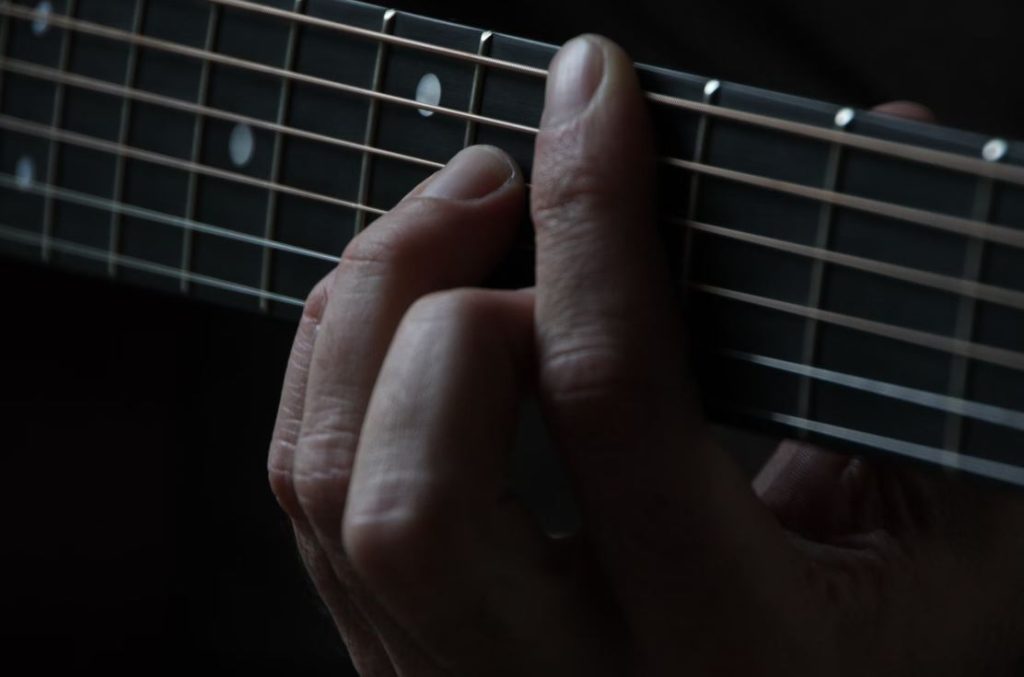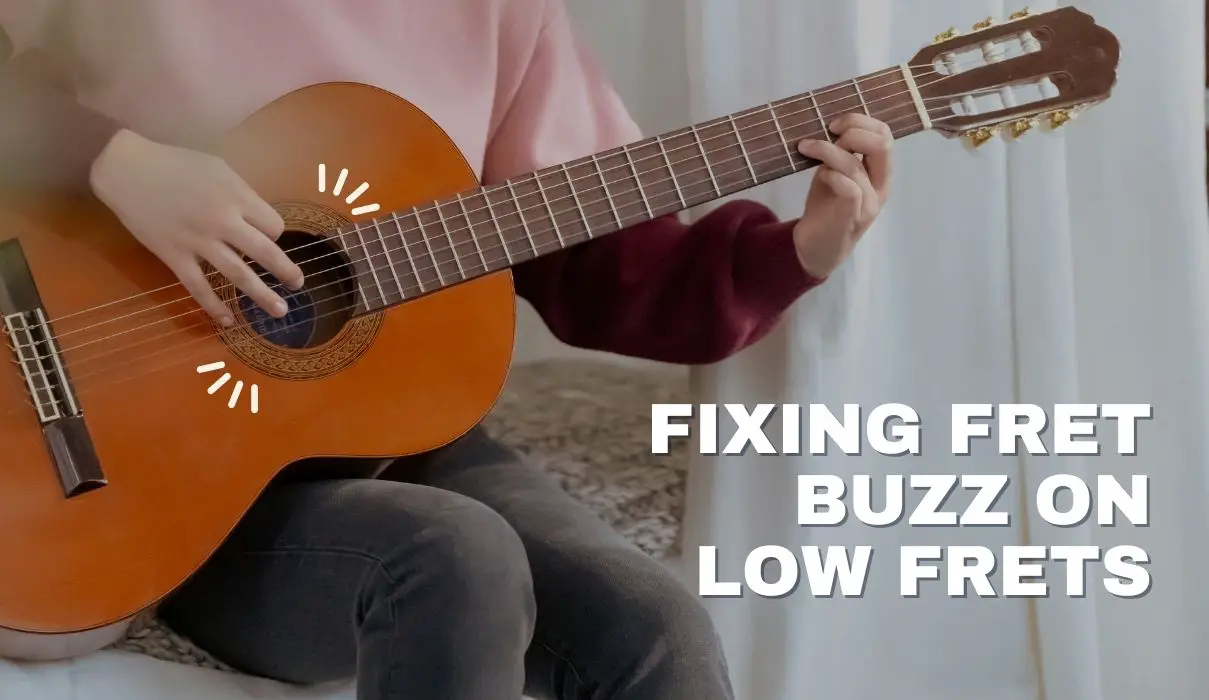This product list contains affiliate links. This means that at no extra cost to you, I may earn a commission if you use one of these links to make a purchase.
Last updated on November 4th, 2023 at 08:01 am
The last thing you want to hear is a buzzing sound coming from your guitar. Fret buzz on low frets is a common problem that can cause frustration and hinder your playing experience. But fear not, I’ve got you covered! In this guide, I will provide you with easy solutions to banish guitar fret buzz for good. Whether you’re troubleshooting an existing buzz or looking to prevent it entirely, I have low fret fret buzz solutions that will work for you.
Key Takeaways
Understanding Fret Buzz on Low Frets

Fret buzz on low frets happens when the string hits a fret while vibrating, causing an unwelcome buzzing sound. This can be frustrating, especially when performing in front of an audience.
There are several reasons why you might be experiencing fret buzz on low frets:
Poor Guitar Setup
A poor guitar setup can cause fret buzz on low frets. If the action (height of the strings above the fretboard) is too low, the strings can hit the frets while vibrating. This can create a buzzing sound, and the problem can be worse on the lower frets. Additionally, if the neck relief (the amount of curvature of the neck) is off, you can experience fret buzz on low frets.
Improper Technique
Another reason for fret buzz on low frets is improper technique. If you’re pressing too hard on the strings, you can push them down too far, causing them to hit the frets. Additionally, if you’re not pressing the strings down hard enough, you can create a buzzing sound.
Other Factors
Other factors that can contribute to fret buzz on low frets include worn frets, old strings, and changes in humidity or temperature. These factors can affect the tension and height of the strings, leading to unwanted buzz when playing.
Also Read: Sore Fingers Guitar Remedy: Discover Yours Today
Troubleshooting Fret Buzz on Low Frets
Now that we have a clear understanding of why fret buzz occurs on the lower frets, it’s time to dive into troubleshooting techniques. The first step is to identify where the buzz is occurring on the guitar neck. Start by playing each fret and listening carefully to identify the location of the buzz.
Once you’ve located the problematic area, let’s explore some possible solutions:
| Problem | Solution |
|---|---|
| Nut is too low | Raise the nut by inserting a piece of paper or a business card underneath it. |
| Truss rod needs adjustment | Loosen the truss rod to create more relief or tighten it to decrease the relief. |
| String height is too low | Raise the saddle height by adjusting the screws on the bridge. |
In addition to these specific remedies, it’s important to maintain your guitar to prevent fret buzz on low frets. Here are some maintenance tips to consider:
- Regularly check and adjust the nut and saddle height to ensure proper string clearance.
- Keep your frets clean and free of debris to prolong their life and prevent buzzing.
- Use a properly calibrated tuner to ensure your guitar is in tune and reduce string tension.
With these solutions and maintenance practices in mind, you’ll be well-equipped to troubleshoot and resolve fret buzz on the low frets of your guitar.
Also Read: Find Your Perfect Guitar Stand for Explorer Today!
Eliminating Fret Buzz on Low Frets: DIY Tips and Tricks

Now that we’ve covered the causes of fret buzz on low frets and troubleshooting techniques, it’s time to roll up our sleeves and get to work on fixing the problem! There are simple DIY tips and tricks that you can employ to eliminate fret buzz on low frets and keep your guitar sounding great.
Adjusting Saddle Height
One of the easiest ways to fix fret buzz on low frets is by adjusting the saddle height. Lowering the saddle height can help reduce the distance between the string and frets, which can eliminate fret buzz. Make small adjustments by loosening the saddle screws and lowering it slightly. Check the fret buzz after each adjustment to determine whether further adjustments are necessary.
Fret Leveling Techniques
If adjusting the saddle height isn’t enough to eliminate fret buzz on low frets, you may need to level your frets. This involves using a specialized tool called a fret file to level the tops of the frets to ensure they are all at the same height. This process requires some skill, so if you’re not confident in your ability to level frets, it’s best to take your guitar to a professional for this procedure.
Proper String Winding Techniques
Believe it or not, the way you wind your strings can also affect fret buzz on low frets. Proper string winding techniques can help ensure that the strings are properly seated in the nut and bridge, which can reduce the likelihood of fret buzz occurring. Make sure to wind the string tightly and neatly to prevent it from slipping, and ensure that the string wraps around the post in a consistent manner.
Also Read: Mastering the Art: How to Tune Guitar Without Tuner
Conclusion
In conclusion, fixing fret buzz on low frets is a common issue among guitarists. But with the right techniques and maintenance, it’s also an easy problem to solve. By understanding the causes of low fret fret buzz, troubleshooting the problem areas, and utilizing DIY tips and tricks, you can eliminate fret buzz and enjoy a buzz-free playing experience.


